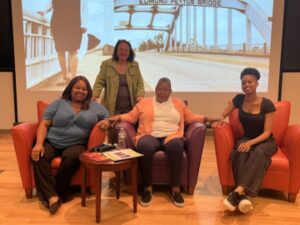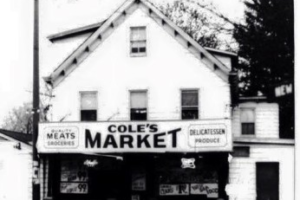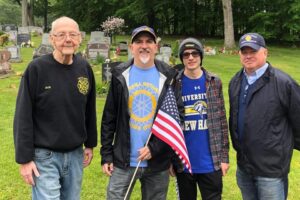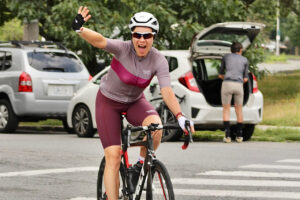
When JoAnne Bland was a young girl growing up in Selma, Alabama, in the 1960s, the local drug store had a lunch counter that served ice cream to local children but not Black kids like herself.
“Every time we passed by, I’d see those white kids spinning around those stools, licking those ice cream cones, and I’d be wishing it was me,” Bland recalled.
One day her grandmother saw her gazing in the shop’s window and whispered to her: “When we get our freedom, we can do that, too.”
That was the moment Bland understood what the struggle for freedom was about, she told an audience of about two-dozen people during a June 5 appearance at the Ossining Library.
The youngster went on to join marches that became turning points in the civil rights movement, including Bloody Sunday, when hundreds of protesters were beaten by police on the Edmund Pettus Bridge. Bland’s older sister was beaten so badly she needed 35 stitches on her head.
By the time she was 11 years old, Bland had been arrested more than a dozen times. She told of being jammed into tiny jail cells with scores of other protesters, then let out only to be rearrested hours later when she rejoined the protests.
Now 70, Bland has dedicated her life to causes of civil rights and social justice, founding the Selma nonprofit Foot Soldiers Park and speaking before audiences like the one in the Ossining Library’s Budarz Theater.
She vividly recalled the dramatic march from Selma to Montgomery that was the catalyst for the Voting Rights Act being signed into law in 1965.
“For every right that we have, there had to be a battle,” Bland said, noting that voting protections continued to be under assault.
Answering questions from Village Historian Joyce Sharrock-Cole and Ossining High School senior Zoie Phillips, Bland interspersed her story with touches of humor and messages of hope.
Asked by Phillips about how to build support for voting among today’s young people, Bland said there were no excuses for leaving the choice up to someone else.
“How can you change anything and make it right if you’re not involved in the process?” she said. “You can sit at the kitchen table and talk about this all day long, but if you’re not going to get involved, you’re not going to change a thing.”
How can African Americans who experience discrimination, albeit in more subtle ways than Bland faced in the 1960s, find their voices as advocates for change, Sharrock-Cole asked.
“We start by teaching our children where we’ve been as a nation and we don’t wait until they’re adults to do it,” Bland replied. “Because if you think your children, your baby’s not listening to that same news that you’re listening to and gauging your reaction to it, you’re crazy. They hear it, and wouldn’t it be better to hear those explanations than to form those opinions out in the street?”
Bland repeated one of her favorite quotes: “Social movements are like jigsaw puzzles. Everybody is a unique and special piece. If your piece is missing, is the picture complete? If you’re the last piece in the puzzle for social change, you complete the picture, so that makes you the most important piece.”
Toward the end of the program, Bland said she had no roadmap for continuing the struggle that was led during the 1960s by the Rev. Martin Luther King Jr. and others.
But she said it was up to young people like her granddaughter, Jasmine, who accompanied her to Ossining, and Zoie Phillips to learn from the past and improve upon it.
“We’re not looking for another Martin … we’re looking for a Zoie or a Jasmine that will come with their ideas. We’ve gotten you this far, how far can you take it? All the way this time, I hope.”






